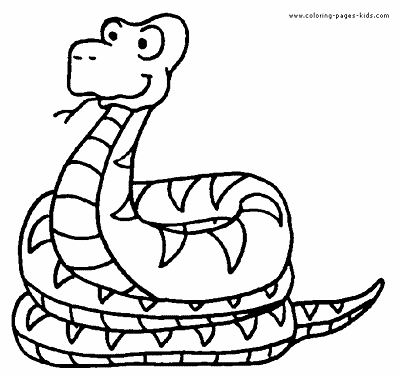Are Exotic Pets a Good Idea?

Have you ever thought it would be neat to have a pet like a tiger or monkey? These animals are often referred to as "exotic pets" and are growing in popularity all around the world. But before you consider obtaining one of these animals as a pet, there are some important things to consider? Before reading further, answer the following questions:
Where do you think exotic pets come from?
Do you think it is possible to tame a wild animal?
What steps would you need to take to ensure that your exotic pet was friendly? What kind of exotic pets do you think would be best for the average person to own?
What Are Exotic Pets?
There are no exact definitions for exotic pets, but usually the term refers to any animal that has not been domesticated. Domesticated animals are ones that have been bred over many generations to have qualities that make them valuable to humans. Domesticated animals can be animals kept as pets, like dogs and cats or animals that are used for other purposes, such as cows, pigs, and goats. These animals have lived with humans for many centuries. Dogs were originally bred from wolves where only the ones with the best temperament were allowed to produce offspring. Eventually, humans began breeding them for other characteristics, such as size (Chihuahua) and appearance (Dalmatian). Dogs have become so domesticated that it would be difficult for many of them to survive in the wild.
Exotic pets are often wild animals that are either captured from their native habitats or bred from captured wild animals. Most of these animals retain their "wild natures". Common exotic pets include: birds, turtles, lizards, snakes, rodents, and even tarantulas. Some people even acquire larger exotics, such as tigers, wolves, and monkeys.
How Many Exotic Animals Can You Find?
Q V M W X N B H F F V A J A Z
H A M S T E R V Z O H N L L F
E E Z N A P M I H C O L D Q N
E A E U X L L H M G I K K D J
W O L F D H U U Z R A W N P Z
R W H E S P I T O A E V P O X
S A N F A Z N G N B L K T A V
C Z C R N Y I T C A E C A U I
R Z R C A N A U G I R K S N D
A O E G O P N R K O R A B K S
T S G U V O O T W O I D T A N
X Q I L I W N L G S U C N U S
Q S T L Z Y L E P L Q N C X Z
U Y W Y N C K T H R S J U Q I
I L H U J N S V H Q U Q A F A
Hint: There are 13 in this puzzle
In your own words, define each of the following terms by using the context of the article above. Underline each word in the article.
1. Domesticated
2. Habitat
3. Temperament
4. Acquire
5. Euthanized
6. Nutritional
7. Docile
8. Poached
9. Endangered
10. Facilities
 Are Exotic Pets Dangerous?
Are Exotic Pets Dangerous?
Some exotic pets can be dangerous. Tarantulas are venomous, some rodents carry diseases and some large animals can become aggressive. Animals such as tigers and primates can be very cute and docile when they are young but become very aggressive and hard to manage as adults. Animals that have been raised with people usually cannot be returned to the wild, because they have not learned the skills to survive. Lion mothers, for instance, teach cubs how to hunt and survive. A lion in captivity has been fed by humans and does not know how to get its own food.
In 2009, a chimpanzee named Travis attacked and severely injured a person visiting his home. There are other cases of large snakes killing children. Unfortunately for these animals, many are euthanized because they cannot be returned to the wild and are too dangerous to keep. In the case of Travis, police shot and killed the chimpanzee when they tried to rescue the woman he was attacking.
Smaller pets, such
as hamsters, turtles and snakes can often be kept safely as long as the
owner knows how to properly care for the animal. Most wild animals have
very specific nutritional needs, so owners must feed them the right diet
or the animal can become sick. Space requirements can also be difficult;
some turtles for instance, will need an area to swim and an area to get
out onto dry land. A person who buys one of these animals should research
the care and handling of these animals.
1. Name three
animals kept as exotic pets that could be a danger to humans:
_________________________________
_________________________________
_________________________________
2. Why can't exotic pets be returned to the wild when they become too big?


Where Do Exotic Pets Come From?
Quiet Thoughts
by Beverly Armstrong
How
would you like to live in a cage
That was just about ten feet square.
With no toys to play with and nothing to do --
Just you and a bed and a chair?
Oh, sure you'd be fed (the same thing each day)
You'd have water (unless they forgot)
And since you would never be going outside
You wouldn't get cold, or too hot.
But oh, you'd be lonely just sitting alone
With no one to talk to all day.
You'd remember the trees, and the grass and the breeze,
The places where you used to play.
You'd remember your friends, you'd remember the sky,
And games and strawberries and sun,
And you know you could never go skating again
Or go swimming, or ride bikes, or run.
You'd get mad and scream and throw things around,
You'd kick and you'd pound on the wall,
And your owners would scold you,
And say to themselves,
"He isn't a nice pet at all!"
The more you got mad, the less they would like you,
The less they'd remember to care
About if you had water or if you got fed
Or if you were lonely in there.
And then you would know what it's like to be kept
As a pet when you're meant to be free,
And you'd listen when wild things are trying to say
"Please Don't Make A Pet Out Of Me!"
Some exotics are native animals, well-meaning people will adopt an orphaned raccoon or squirrel and raise it and keep it as a pet. Some of these can be successfully returned to the wild because they are already in their normal habitat.
Other exotics are part of an illegal trading industry. Primates such as orangutans and gorillas are poached from the wild, usually their mothers are killed and the poachers will sell the young. In most countries, this practice is illegal, but the demand is still there and worth the risk to some people.
Smaller exotics, such as iguanas are born and raised in captivity by licensed breeders. Rodents are not particularly hard to breed and most pet stores will have a variety for sale (hamsters, gerbils, guinea pigs) and most of the time they will be easy to care for and manage. Birds are also animals that are kept and bred in captivity, and in fact, for so many years that some consider animals like the parrot and lovebird to be domesticated.
When considering an exotic pet, you should carefully consider where the animal came from to ensure that you are not contributing to illegal activities. Consider whether the animal is an endangered species - these animals should never be taken from the wild and only specialized facilities, like zoos, should be caring for them. If they are endangered it means that there are very few of them in the wild.
Also, many wild animals (exotics) require special permits issued by the state in order to own them legally.
1. What type of animals sold in pet stores were originally captured from the wild but are now bred in captivity?
2. Read the poem "Quiet Thoughts" - what is the author's message?
3. On the back of this page, write a short paragraph that describes your thoughts on people owning exotic pets.
Color These Exotics


Extension:
I'm sure you've imagined having a neat exotic pet, like a tiger or a boa constrictor. Use the internet to research an animal you might be interested in. Write a report on your research that answers the following questions:
1. Where does the animal live normally? Describe its lifestyle as it would live in the wild.
2. What kind of housing or enclosure would you need to keep it? How big will it get?
3. What does it eat? Where will you obtain its food?
4.
What are safety considerations? Is the animal potentially dangerous? How will you keep it from injuring a person?
5.
What will you do if the animal gets sick or becomes too big or too aggressive to keep?

